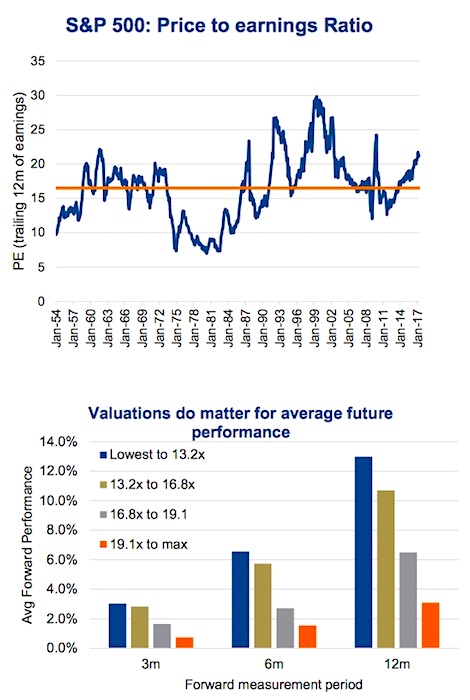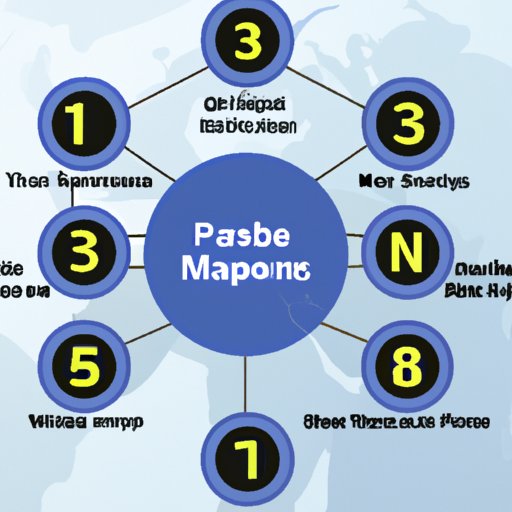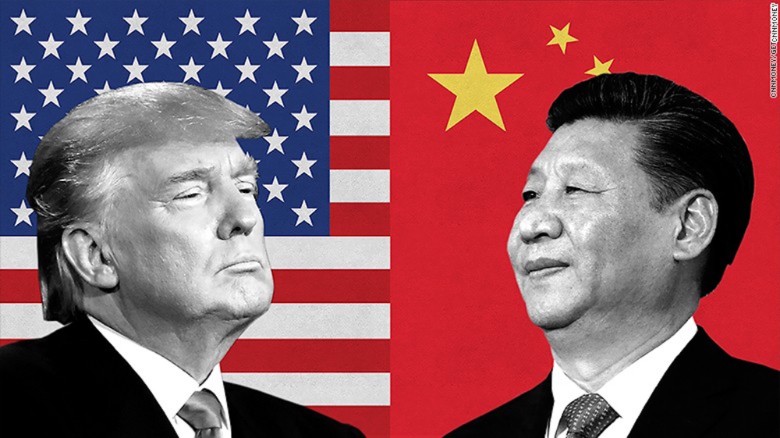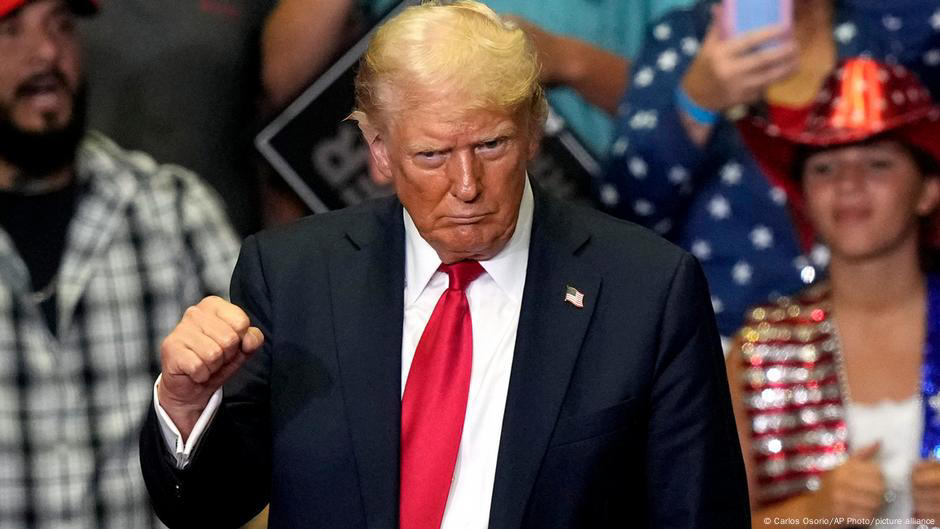Microsoft-Activision Deal: FTC's Appeal Challenges Regulatory Approval

Table of Contents
The FTC's Concerns Regarding Competition
The FTC's primary concern revolves around the potential for reduced competition within the gaming market. Their appeal centers on two key areas: the console market and the burgeoning cloud gaming sector.
Reduced Competition in the Gaming Console Market
The FTC argues that the Microsoft-Activision deal, if finalized, would give Microsoft an unfair competitive advantage, particularly in the console market. This concern stems from Microsoft's potential to leverage its newly acquired assets to stifle competition.
- Exclusive Titles: Microsoft could make popular Activision Blizzard titles, such as Call of Duty, exclusive to the Xbox ecosystem. This would significantly reduce the appeal of competing consoles like PlayStation and Nintendo Switch.
- Reduced Consumer Choice: The lack of availability of key titles on competing platforms would limit consumer choice and potentially drive gamers towards the Xbox ecosystem.
- Higher Prices and Less Innovation: With less competition, Microsoft could potentially raise prices for games or reduce innovation due to a lack of pressure from rival companies. This could negatively impact the overall gaming experience for consumers.
Concerns about Cloud Gaming Dominance
Beyond consoles, the FTC also expresses significant worry about Microsoft's potential to dominate the rapidly expanding cloud gaming market. This fear is driven by Microsoft's already strong position in cloud computing, combined with the addition of Activision Blizzard's extensive game library.
- Consolidation of Cloud Gaming Power: The Microsoft-Activision merger would allow Microsoft to leverage Activision Blizzard's popular game titles to solidify its position as a leader in cloud gaming.
- Limited Opportunities for Competitors: This dominance could limit opportunities for smaller competitors in the cloud gaming market, potentially leading to a less diverse and innovative gaming landscape.
- Anti-Competitive Practices: The FTC is concerned that Microsoft could use its market power to engage in anti-competitive practices, such as exclusive deals or pricing strategies, to shut out rivals.
Microsoft's Counterarguments and Proposed Remedies
Microsoft has countered the FTC's concerns, arguing that the merger will actually benefit gamers by increasing competition and innovation. They've presented several concessions aimed at addressing the FTC's anxieties.
Microsoft's Commitment to Fair Competition
Microsoft has consistently maintained that the Microsoft-Activision deal will not harm competition. Their public statements emphasize their commitment to keeping Activision Blizzard games available across multiple platforms and fostering a fair and competitive environment.
- Cross-Platform Availability: Microsoft has pledged to continue releasing Activision Blizzard games on PlayStation, Nintendo Switch, and other platforms.
- Agreements with Competitors: They've indicated willingness to negotiate agreements with competitors to ensure fair access to Activision Blizzard content.
- Investment in Cloud Gaming Infrastructure: Microsoft plans to invest further in its cloud gaming infrastructure, ostensibly to encourage greater competition and innovation within the cloud gaming space.
Analyzing the Proposed Concessions
The efficacy of Microsoft's proposed remedies remains a central point of contention in the appeal. The FTC is likely scrutinizing the details of these concessions to determine their long-term impact on competition.
- Contractual Obligations: The specifics of any contractual obligations with competitors regarding game availability and pricing will be thoroughly examined.
- Independent Monitoring: The presence of independent monitoring mechanisms to ensure compliance with any agreed-upon terms will be a key aspect of the FTC's evaluation.
- Long-Term Effects: A comprehensive analysis of the potential long-term effects of these proposed remedies is crucial in determining the ultimate outcome of the appeal.
Potential Outcomes and Implications of the Appeal
The FTC's appeal could result in several different outcomes, each with far-reaching consequences for the gaming industry.
Scenarios Following the Appeal
Several scenarios are possible following the FTC's appeal:
- FTC Victory: Blocking the Merger: The FTC could successfully overturn the initial approval, resulting in a complete blockage of the Microsoft-Activision deal.
- Compromise and Modification: A negotiated settlement might result in modifications to the merger agreement, addressing the FTC's concerns.
- Microsoft Victory: Proceeding as Planned: Microsoft could win the appeal, allowing the merger to proceed as initially planned.
Impacts on Gamers and the Gaming Industry
Regardless of the outcome, the appeal's impact on the gaming landscape will be significant:
- Game Availability and Pricing: The availability and pricing of Activision Blizzard games could be significantly affected, depending on the appeal's outcome.
- Competitive Landscape: The competitive dynamics within the gaming industry will shift based on the decision, impacting innovation and consumer choice.
- Future Mergers and Acquisitions: The appeal will set a precedent for future mergers and acquisitions in the gaming sector, influencing regulatory scrutiny.
Conclusion
The FTC's appeal against the Microsoft-Activision deal is a pivotal moment for the gaming world. The outcome will dramatically shape competition, game access, and pricing. While Microsoft champions the merger's benefits, the FTC's concerns about potential monopolies require careful consideration. Staying updated on the progress of this appeal is vital for anyone invested in the future of the Microsoft-Activision deal and the wider gaming landscape. Stay informed on the latest developments surrounding the Microsoft-Activision merger and its ramifications.

Featured Posts
-
 Los Angeles Palisades Fire A List Of Celebrities Who Lost Their Properties
Apr 22, 2025
Los Angeles Palisades Fire A List Of Celebrities Who Lost Their Properties
Apr 22, 2025 -
 Bof A Reassures Investors Why Current Stock Market Valuations Arent A Threat
Apr 22, 2025
Bof A Reassures Investors Why Current Stock Market Valuations Arent A Threat
Apr 22, 2025 -
 Mapping The Countrys Hottest New Business Locations
Apr 22, 2025
Mapping The Countrys Hottest New Business Locations
Apr 22, 2025 -
 U S China Tensions A Deep Dive Into The Potential For Renewed Cold War Dynamics
Apr 22, 2025
U S China Tensions A Deep Dive Into The Potential For Renewed Cold War Dynamics
Apr 22, 2025 -
 The Human Cost Of Trumps Economic Vision
Apr 22, 2025
The Human Cost Of Trumps Economic Vision
Apr 22, 2025
Latest Posts
-
 Elizabeth Hurleys Bikini Fashion A Maldives Vacation Diary
May 10, 2025
Elizabeth Hurleys Bikini Fashion A Maldives Vacation Diary
May 10, 2025 -
 Maldives Vacation Elizabeth Hurleys Bikini Looks
May 10, 2025
Maldives Vacation Elizabeth Hurleys Bikini Looks
May 10, 2025 -
 Police Seek Suspect Following Series Of Elizabeth City Vehicle Break Ins
May 10, 2025
Police Seek Suspect Following Series Of Elizabeth City Vehicle Break Ins
May 10, 2025 -
 Britannian Kruununperimysjaerjestys Uusi Jaerjestys Ja Sen Merkitys
May 10, 2025
Britannian Kruununperimysjaerjestys Uusi Jaerjestys Ja Sen Merkitys
May 10, 2025 -
 Strictly Come Dancing Wynne Evans On Return Calls And The Truth
May 10, 2025
Strictly Come Dancing Wynne Evans On Return Calls And The Truth
May 10, 2025
